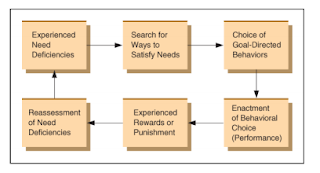Financial and non-financial motivation in Organization - Chapter 2 - Part 3
There are many reasons why people work for an organization? It is undeniable that money, or other financial rewards, play a key role in motivating people in the workplace. It is widely accepted that poor or low pay acts as a de-motivator. Someone who feels undervalued or under-paid may soon leave to find better-paid employment. There is a wide variety of ways in which a business can offer money (or “financial rewards”) as part of the “ pay package ”, including: Salaries: fixed amounts per month or year for performing a role; these are common for most managerial positions. Benefits: very common in businesses of all kinds; these include staff discounts, contributions to travel costs, staff uniforms etc. Time-rate pay: pay based on time worked; very common in small businesses where employees are paid per hour. Piece-rate pay: pay per item produced – becoming less common Commission: payment based on the value of sales achieved. performance-related pay: e.g. bonus
